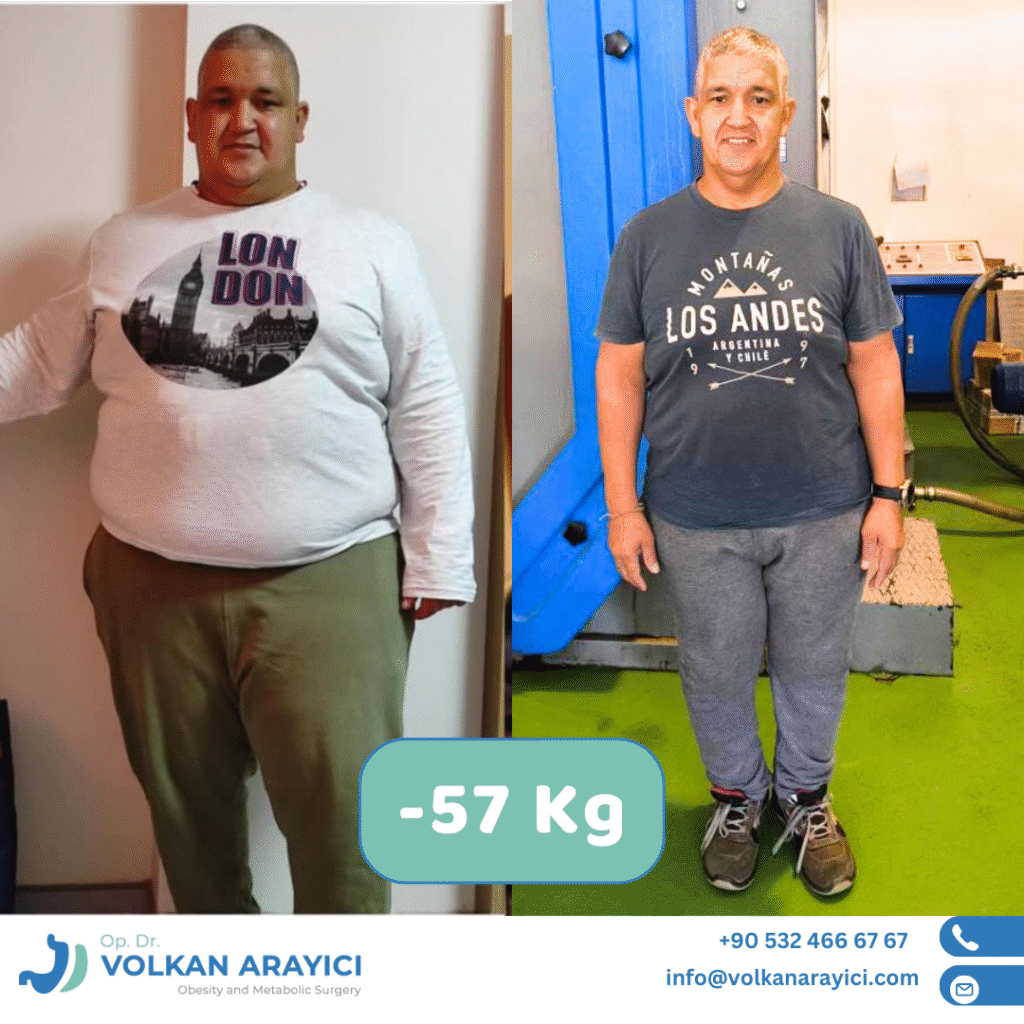Weight loss surgery and Diabetes
A diagnosis of type 2 Diabetes is often closely linked to obesity and represents a significant burden for many affected individuals. While conventional methods like diet and exercise are fundamental, they are often insufficient to achieve sustainable blood sugar control and weight reduction. In this context, Bariatric Surgery specifically gastric sleeve and diabetes, gastric bypass and diabetes, and general weight loss surgery and Diabetes is increasingly coming into focus.
This guide provides a detailed analysis of the various surgical options, highlights their effectiveness in treating type 2 Diabetes, and helps you make an informed decision for your health. We will compare the mechanisms, benefits, risks, and long-term outcomes of the procedures.

The Connection Between Obesity and Type 2 Diabetes
Obesity is a global epidemic and the main risk factor for developing type 2 Diabetes. Estimates from the International Diabetes Federation (IDF) show a steadily growing number of Diabetes patients worldwide. A Body Mass Index (BMI) over 35 kg/m² increases the risk of developing type 2 Diabetes by 40 times compared to people with a normal BMI.
The excessive accumulation of fat tissue, especially in the abdominal area, leads to insulin resistance. This means the body’s cells no longer respond effectively to the hormone insulin, which is responsible for regulating blood sugar levels. The pancreas tries to compensate by increasing insulin production, which can lead to its exhaustion over time. Bariatric Surgery addresses this issue not just through weight reduction, but also through complex hormonal changes.
Which Gastric Surgery for Diabetes? A Comparison of Procedures
Choosing the right surgical procedure is an individual decision that must be made in close consultation with an experienced surgeon. The three most common procedures for treating obesity and Diabetes are the gastric sleeve and diabetes, the gastric bypass and diabetes, and other forms of weight loss surgery.
1. Gastric sleeve and diabetes (Sleeve Gastrectomy)
The gastric sleeve operation is one of the most frequently performed bariatric procedures today. It involves laparoscopically removing about 75-80% of the stomach, creating a narrow, tube-shaped residual stomach.
How it works for Diabetes:
- Restriction: The smaller stomach can only hold a small amount of food, which drastically reduces calorie intake and leads to significant weight loss.
- Hormonal Changes: A key advantage of the gastric sleeve for Diabetes is the removal of the stomach fundus. This area produces the majority of the “hunger hormone” ghrelin. The reduction of ghrelin lowers appetite and simultaneously improves insulin sensitivity.
- Incretin Effect: The faster passage of food from the stomach into the small intestine stimulates the release of gut hormones like GLP-1 (Glucagon-like Peptide-1). GLP-1 promotes insulin secretion, inhibits glucagon release, and improves blood sugar control, often just a few days after surgery and even before significant weight loss occurs.
Studies show that a gastric sleeve and diabetes procedure can lead to a significant improvement or even complete remission of type 2 Diabetes in up to 80% of patients within the first few months.
2. Gastric bypass and diabetes (Roux-en-Y gastric bypass and diabetes)
The gastric bypass and diabetes approach has long been considered the gold standard in metabolic surgery for Diabetes. In this more complex procedure, a small stomach pouch is separated from the rest of the stomach and connected directly to a lower section of the small intestine.
How it works for Diabetes:
- Restriction and Malabsorption: The small stomach pouch limits food intake. Additionally, a portion of the small intestine is bypassed, which reduces the absorption of calories and nutrients (malabsorption).
- Strong Hormonal Effect: The gastric bypass and diabetes triggers the strongest hormonal changes. The rerouting of food leads to a massive release of GLP-1 and other incretins, resulting in a very rapid and often dramatic improvement in blood sugar control.
- Long-term Effectiveness: Long-term studies confirm a high rate of Diabetes remission after a gastric bypass and diabetes, which often lasts for many years.
Due to its powerful metabolic effect, the gastric bypass and diabetes method is frequently recommended for patients with long-standing, difficult-to-control type 2 Diabetes or severe insulin resistance.
3. General weight loss surgery and Diabetes
The term “weight loss surgery for Diabetes” encompasses various bariatric procedures. The goal is always to achieve weight loss and improve metabolic health by reducing stomach volume or altering the digestive tract’s anatomy.
Compared to drug therapy, any form of weight loss surgery is significantly superior for Diabetes when it comes to long-term results. Unlike diets, surgical procedures achieve more sustainable success because they positively influence not only eating behavior but also the body’s underlying hormonal regulatory mechanisms. The yo-yo effect, which causes many diets to fail, is greatly mitigated by the metabolic adjustments following surgery.

Can Bariatric Surgery Cure Diabetes?
The question of whether surgery can “cure” Diabetes is complex. Medical professionals prefer to speak of “remission.” This means that blood sugar levels return to the normal range without the need for Diabetes medication.
The chances of remission are highest when:
- The Diabetes has not been present for a long time (ideally under 5-7 years).
- Little to no insulin is required.
- The C-peptide level indicates good residual function of the pancreas.
- Significant weight loss is achieved after the operation.
The sooner obese patients with type 2 Diabetes undergo surgery after diagnosis, the higher the probability of long-lasting remission. Even if complete remission is not achieved, the surgery almost always leads to a drastic improvement in blood sugar control, a reduction in required medications, and a decrease in Diabetes-related complications.
Risks of Bariatric Surgery for Diabetics
Although the procedures are safe and effective, surgery for diabetics carries specific risks that must be carefully considered:
- Blood Sugar Fluctuations: Immediately after the operation, there can be sharp fluctuations in blood sugar levels, requiring close monitoring and medication adjustments.
- Hypoglycemia (Low Blood Sugar): Due to the changed food intake and improved insulin action, low blood sugar can occur, especially after a gastric bypass and diabetes.
- Wound Healing Disorders: Poorly controlled Diabetes can impair wound healing and increase the risk of infection. Good preoperative blood sugar control is therefore crucial.
- Nutrient Deficiencies: The reduced food intake and malabsorption (with gastric bypass and diabetes) require lifelong intake of vitamin and mineral supplements to prevent deficiencies.
An experienced surgeon will be aware of these risks and take appropriate precautions to maximize patient safety.
When is a gastric sleeve and diabetes Operation Not an Option?
There are certain contraindications that speak against a bariatric procedure. These include:
- Severe, untreated mental illnesses (e.g., active eating disorders).
- Active alcohol or drug abuse.
- Severe heart or lung diseases that pose an unacceptable surgical risk.
- Diseases of the upper digestive tract such as severe reflux disease (can be a contraindication for the gastric sleeve and diabetes, but an indication for the gastric bypass and diabetes).
- A BMI over 60 may in some cases require a two-stage approach to reduce risk.
The decision for or against surgery is always made individually after a comprehensive medical and psychological evaluation.

Conclusion: A Sustainable Solution for Diabetes and Obesity
Bariatric Surgery offers a highly effective and sustainable treatment option for obese patients with type 2 Diabetes. Procedures like the gastric sleeve and diabetes, gastric bypass and diabetes, and other forms of weight loss surgery not only lead to massive weight loss but also improve or eliminate Diabetes through profound hormonal changes.
The choice of the right procedure depends on individual factors such as the duration and severity of the Diabetes, BMI, and general health status. While the gastric bypass and diabetes shows the strongest metabolic effects for Diabetes, the gastric sleeve and diabetes is a technically simpler and also very effective alternative with an excellent safety profile.
In summary, surgery performed by an experienced team offers the chance for a life without Diabetes medication and with a significantly improved quality of life. It is an investment in your long-term health.
Can bariatric surgery completely cure type 2 diabetes?
Bariatric surgery doesn’t “cure” diabetes but can induce “remission.” This means blood sugar levels return to normal ranges without the need for diabetes medications.
Which type of bariatric surgery is the most effective for diabetes?
Gastric bypass is considered the most effective procedure for diabetes due to its strong metabolic effects. However, gastric sleeve surgery is also a highly effective alternative.
Will I still need diabetes medications after bariatric surgery?
For most patients, the need for diabetes medications is significantly reduced or eliminated. However, this depends on individual health conditions and the success of the surgery.
Is there a risk of diabetes returning after bariatric surgery?
Diabetes remission is often long-lasting, but it can return if weight is regained or other health factors change.
How is blood sugar managed after bariatric surgery?
Post-surgery, regular blood sugar monitoring and working with a dietitian are essential to maintaining blood sugar control.
Can bariatric surgery be performed for diabetes without morbid obesity?
Bariatric surgery is typically recommended for patients with a BMI over 35 who also have diabetes or other metabolic conditions.
How does the diet change after bariatric surgery?
Portion sizes are significantly reduced after surgery, and vitamin and mineral supplements may be required. Support from a dietitian is important during this process.
What are the risks of bariatric surgery?
Risks may include blood sugar fluctuations, hypoglycaemia, wound healing issues, and nutritional deficiencies. However, an experienced surgeon can effectively manage these risks.
How soon can diabetes remission be observed after surgery?
In some patients, remission can be observed within the first few days after surgery.
Who is not suitable for bariatric surgery?
Patients with active eating disorders, alcohol or substance abuse, or severe heart or lung conditions may not be suitable candidates for bariatric surgery.
